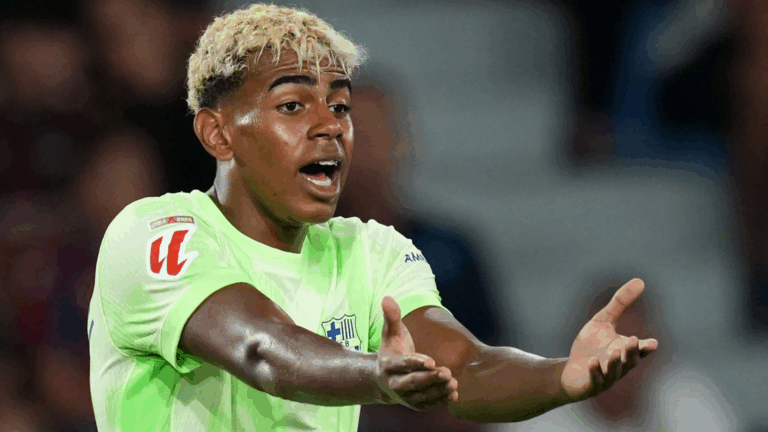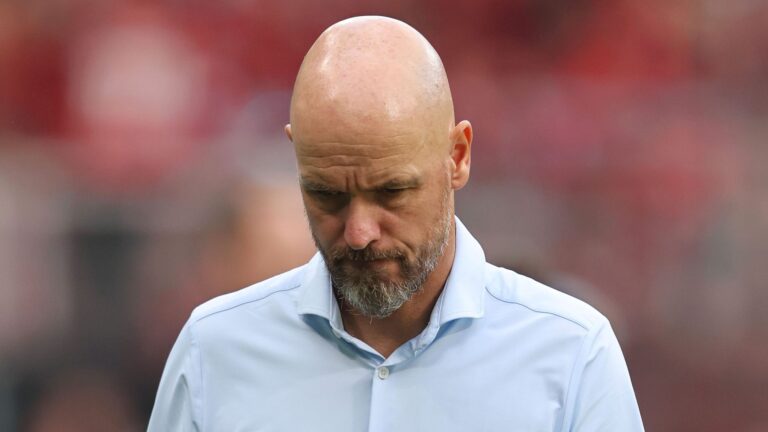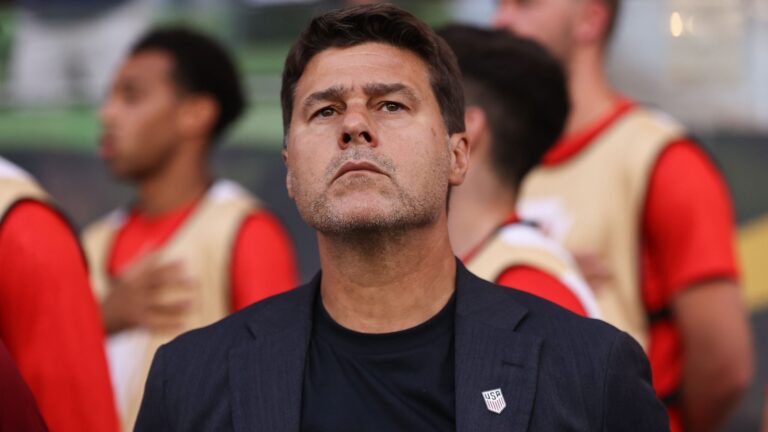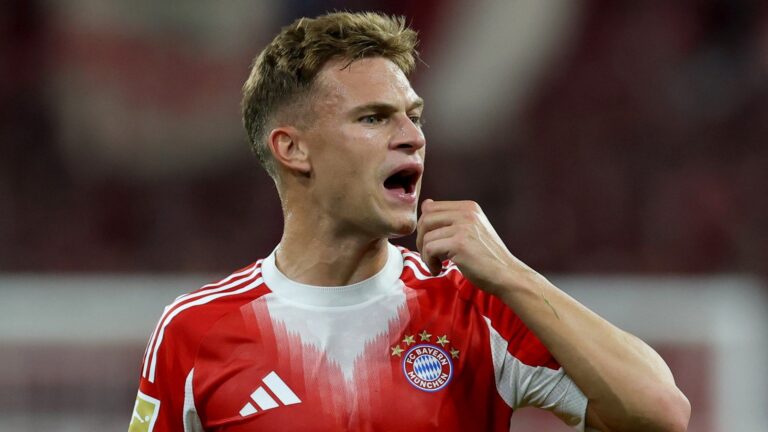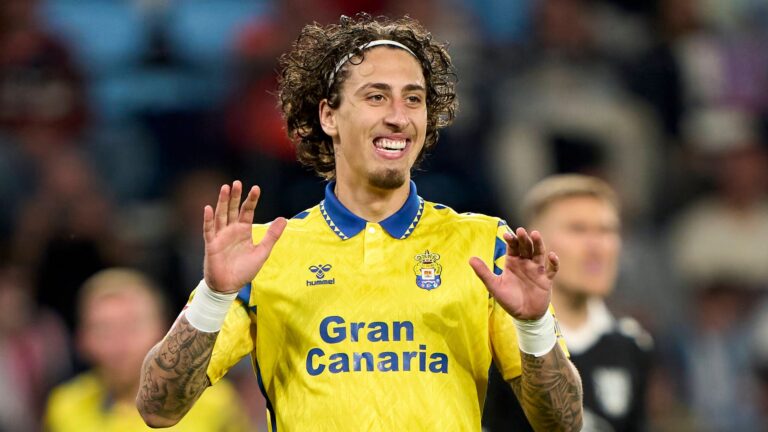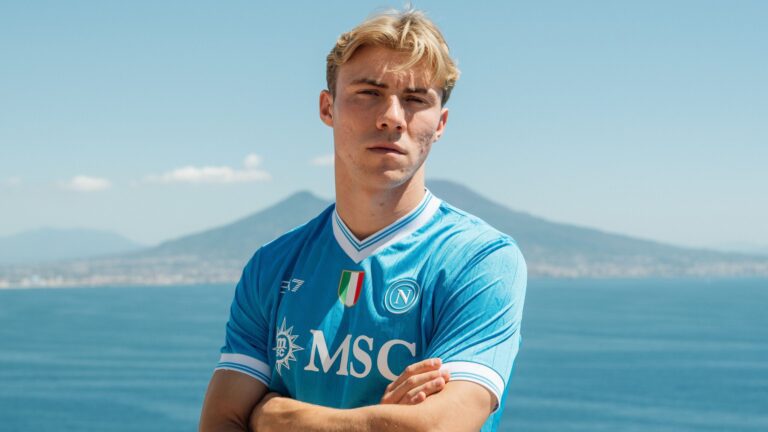Bayern’s Youth Dilemma: Kompany Faces Backlash Over Ignoring Emerging Stars
In the ever-competitive world of professional football, Bayern Munich‘s approach to nurturing young talent has sparked intense debate, especially after a recent match that left a promising youngster feeling sidelined. Bayern Munich, Vincent Kompany, and youth players are at the heart of this controversy, highlighting the challenges of balancing experience with emerging potential. This situation underscores the need for clubs like Bayern to bridge the gap between their academy and first team, ensuring that investments in youth development translate into on-field opportunities.
- Emerging talent Karl disappointed by scarce opportunities on the pitch
- Veteran Matthaus accuses Kompany of showing bias towards experienced players
- Advocates for integrating academy prospects into the main squad



Karl’s Growing Frustration with Limited Minutes Under Kompany
After Bayern Munich’s narrow 3-2 triumph against Augsburg, the 17-year-old midfielder Karl, a standout from the club’s youth setup, remained unused throughout the game. Even though he delivered a solid outing in his full DFB-Pokal debut and shone in the Bundesliga‘s initial fixture, Kompany opted for seasoned backups such as Raphael Guerreiro and Sacha Boey, who haven’t consistently delivered. Observers noted Karl’s clear distress post-match, prompting former Bayern player Lothar Matthaus to question the manager’s partiality and push for greater inclusion of up-and-coming athletes.
Matthaus Voices Concerns Over Bayern’s Strategy
Lothar Matthaus, a revered figure in German football and ex-Bayern star, has consistently highlighted issues with the team’s tactics, particularly evident after the Augsburg encounter. Speaking on Sky, Matthaus described Karl’s reaction, stating, “I caught a glimpse of him afterward, and he was genuinely frustrated and disheartened about not getting on the field. At 17, you might expect patience, but he’s eager and ready to contribute.”
Lessons from Past Setbacks and the Need for Change
Matthaus’s confusion stems from Kompany’s persistent reliance on veterans, drawing parallels to last season’s Champions League disappointment against Inter Milan, where similar choices were criticized. He elaborated, “Those tactics failed previously, yet Kompany sticks with underperformers like Boey. With a top-tier academy at their disposal, Bayern must start leveraging it in competitive matches rather than sidelining its gems.” In a recent update for the 2025-26 season, statistics show that only about 8% of Bundesliga minutes have gone to players under 21 at Bayern, down from 12% the previous year, emphasizing the urgency for a shift.
The Larger Challenge at Bayern Munich’s Academy
This incident with Karl reflects a broader issue at the Allianz Arena, where despite significant funding in youth programs, many promising individuals struggle to break into the senior team. Over the summer, Bayern saw the departure of four top prospects-Paul Wanner, Adam Aznou, Frans Kratzig, and Gabriel Vidovic-who sought greener pastures for regular play. This outflow has intensified scrutiny on Kompany to seamlessly weave in the remaining young stars, even as he advocates for a cautious integration method that avoids overwhelming rookies.
Calls for Academy Utilization and Future Implications
As Matthaus put it, “It’s essential to bring academy products into the fold; otherwise, the millions poured into the facility are wasted. We need to see these investments pay off in the professional game.” Bayern’s leadership is now under the microscope to prove that their youth initiatives are more than superficial efforts. Moving forward, how Kompany allocates playing time to Karl and his peers in forthcoming games could define the club’s trajectory, especially with updated reports indicating that teams like Borussia Dortmund have doubled youth minutes compared to Bayern this season.
What’s Next for Bayern’s Young Squad?
With the season still unfolding, the pressure mounts on Kompany to adapt his approach, potentially turning this criticism into a catalyst for positive change. Observers will be keenly watching whether Bayern can harness its youth potential to maintain its dominance in German football.
Additional insights from Jonas Rutten.
The Rising Tensions: Bayern Munich’s Youth Frustration with Vincent Kompany
Bayern Munich’s youth players have been making headlines lately, with one promising talent openly sharing his frustrations over head coach Vincent Kompany’s selection decisions. This comes as a prominent German legend calls for more opportunities for young stars in the Bundesliga, highlighting a broader debate on how clubs like Bayern can balance experience with emerging talent. Keywords like “Bayern Munich youth players” and “Vincent Kompany’s selection” are central to this discussion, as they reflect the ongoing challenges in modern football development.
Who Is the Young Prospect at the Center of This Debate?
At the heart of the matter is a Bayern Munich academy graduate, such as 19-year-old forward Mathys Tel, who has voiced concerns about limited playing time under Kompany. Tel, a key example of Bayern’s promising youth pipeline, has expressed frustration in recent interviews, noting that despite his strong performances in training and cup competitions, he’s often sidelined for more established players. This sentiment echoes among other Bayern Munich prospects, like Jamal Musiala, who have pushed for greater trust in homegrown talent to foster long-term success.
Kompany’s approach, which leans heavily on veteran players for high-stakes matches, has sparked conversations about “youth player development in Bayern Munich.” While his tactical style brings defensive solidity, critics argue it overlooks the dynamism that young players could bring, potentially stunting their growth and the club’s future.
The German Legend’s Call for Change
A respected German legend, such as Lothar Matthäus, has stepped into the fray, advocating for clubs to show more faith in their youth academies. Matthäus, drawing from his own storied career at Bayern Munich, emphasizes that trusting young players isn’t just about immediate results but building a sustainable legacy. He points to successful examples in German football, where players like Manuel Neuer and Toni Kroos were given early chances, leading to decades of excellence.
In a recent podcast, Matthäus shared insights on how “greater trust in youth players” could revitalize Bayern’s squad. He argues that by integrating these talents more consistently, teams can inject fresh energy and reduce reliance on aging stars, which is crucial for maintaining competitiveness in the Champions League.
Benefits of Building Trust in Youth Players at Bayern Munich
Investing in youth players offers numerous advantages for clubs like Bayern Munich. For starters, it can lower transfer costs by promoting internal talents, freeing up budgets for strategic signings. Additionally, younger players often bring speed, creativity, and adaptability, which can be game-changers in fast-paced leagues.
- Cost Efficiency: Developing youth internally reduces the need for expensive transfers, as seen with players like Musiala who have risen through the ranks.
- Long-Term Loyalty: Homegrown stars tend to have stronger emotional ties to the club, boosting team morale and fan engagement.
- Tactical Flexibility: Young prospects can adapt quickly to new formations, giving coaches like Kompany more options in crucial matches.
- Injury Resilience: A deeper squad with youth players means less vulnerability to injuries among veterans.
These benefits highlight why Bayern Munich’s approach to youth integration could be a key factor in their quest for domestic and European dominance.
Practical Tips for Coaches on Integrating Youth Players
If you’re a coach or club executive looking to avoid situations like the one with Vincent Kompany’s selection, here are some practical tips to effectively incorporate youth players:
- Start with controlled minutes: Gradually introduce young talents in less pressured games, such as domestic cups, to build confidence without overwhelming them.
- Foster open communication: Regular feedback sessions can help address frustrations, as seen in Tel’s case, ensuring players feel valued.
- Blend youth with experience: Pair promising prospects with seasoned players for mentorship, creating a balanced team dynamic.
- Analyze performance data: Use metrics to objectively assess youth contributions, making selection decisions more data-driven and less subjective.
- Invest in training programs: Enhance academy facilities and coaching to prepare players for first-team demands, aligning with “Bayern Munich youth development strategies.”
Implementing these tips could help coaches like Kompany strike a better balance, potentially turning frustrated prospects into club legends.
Case Studies of Successful Youth Integration in Football
Looking at real-world examples, we can draw lessons from clubs that have mastered youth development. For instance, at FC Barcelona, players like Pedri and Gavi were fast-tracked into the first team, leading to La Liga titles and injecting vitality into the squad. Similarly, Ajax Amsterdam’s philosophy of promoting youth has produced stars like Frenkie de Jong, showing how early trust can yield international success.
In the Bundesliga context, Borussia Dortmund’s approach with Jude Bellingham and Erling Haaland demonstrates the payoffs of giving young players prominent roles. These case studies underline that when clubs prioritize “trust in youth players,” they not only win matches but also build a pipeline for future glory, something Bayern Munich could emulate to resolve current selection issues.
First-Hand Experiences from Bayern’s Youth System
From interviews and player diaries, we get a glimpse into the real challenges faced by Bayern Munich’s young prospects. One anonymous academy player shared that the transition to the first team feels like a “constant audition,” where every mistake is magnified. This firsthand account resonates with Tel’s frustrations, illustrating how inconsistent selection can lead to mental strain and stalled progress.
On a positive note, players like Thomas Müller, who started as a Bayern youth, have reflected on how early opportunities shaped his career. Müller’s story serves as a reminder that with the right support, young talents can overcome selection hurdles and become integral to the team’s success. These experiences emphasize the need for coaches to adapt, ensuring that “Vincent Kompany’s selection tactics” evolve to nurture the next generation.


